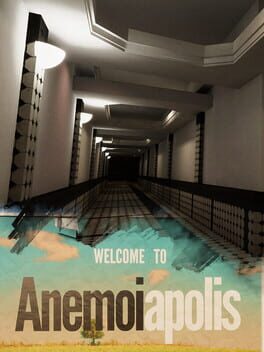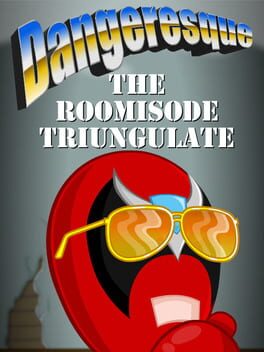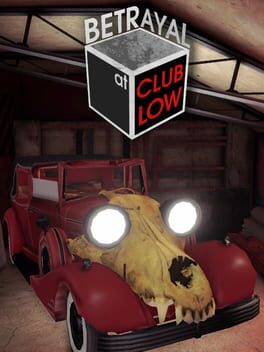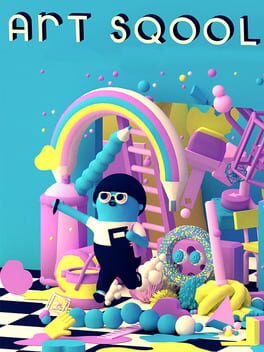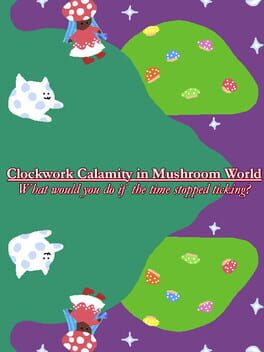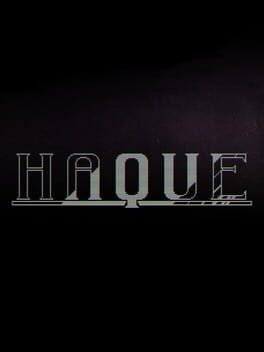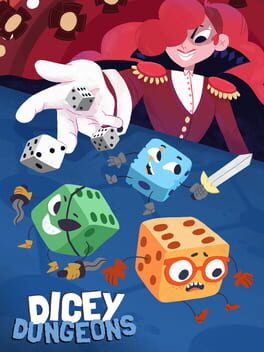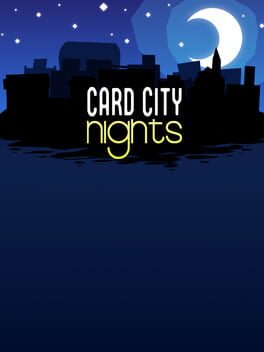hit2key
10 reviews liked by hit2key
The idea of Anemoiapolis, the eternally expanding beige-carpet nightmare of 80s hotels, is a good one, and the game executes a decent rendition of what such an environment would look like in an explorable 3D space. However, the game misses just about every other mark it aims for. It is too open, too empty, and too insistent on how the player is supposed to feel about the space. Anemoiapolis leaves behind an experience that less than engaging, let alone scary.
There is no meaningful tension build or sense of unease in Anemoiapolis. This isn't really a problem itself, but this lack of tension clashes with character dialogue that suggests an unease and desperation that just isn't there. The emotions engendered by the environment aren't allowed to speak for themselves.
The areas of Anemoipolis are not emotionally interesting either. The best are confusing and unnerving investigations of intentionally difficult spaces, and the rest are just carpet mazes. The game needs to fall about on Backrooms-tier paranormal nonsense to get a genuine rise out of players, which is another strike in the "won't let the environment speak for itself" book.
Anemoiapolis is also really slow to navigate, due to how big the environment is and how slow the player moves. Seeing how Anemoiapolis is an empty set of rooms with little to look at or interact with, walking around gets really boring really fast.
There is no meaningful tension build or sense of unease in Anemoiapolis. This isn't really a problem itself, but this lack of tension clashes with character dialogue that suggests an unease and desperation that just isn't there. The emotions engendered by the environment aren't allowed to speak for themselves.
The areas of Anemoipolis are not emotionally interesting either. The best are confusing and unnerving investigations of intentionally difficult spaces, and the rest are just carpet mazes. The game needs to fall about on Backrooms-tier paranormal nonsense to get a genuine rise out of players, which is another strike in the "won't let the environment speak for itself" book.
Anemoiapolis is also really slow to navigate, due to how big the environment is and how slow the player moves. Seeing how Anemoiapolis is an empty set of rooms with little to look at or interact with, walking around gets really boring really fast.
I never actually thought I'd see the day this was finished. I almost thought the "Roomisode 1" in the title of the original flash game was meant to be like a "History of the World Part 1" style joke and not a promise for more episodes once enough time had passed without anymore.
That first Roomisode was without a doubt probably my favorite Videlectrix game on homestarrunner.com. I can't remember if I played it before or after SBCG4AP but since that was what introduced me to the world of point and clicks through Telltale I do know that this would've been my first introduction to a proper point and click game. Whereas most of the flash point and clicks I had played before were either very simple or more akin to escape room games, this was modeled after the defining works in the point and click adventure game genre and I ate it up.
Looking back I think it very well may have been the peak experience for me when it came to classic-style point and clicks. As much as I love the Monkey Island games and Sam and Max Hit the Road, Homestar Runner is always going to take up more space in my heart. Plus with it being in a single room it was the perfect bite-sized, most accessible version of a point and click adventure game for me. No clicking around searching endlessly to find out what interactable item or batcrap insane solution I missed, everything I needed was on screen and I just needed to use my expert sunglasses'd-detective skills to figure it out. And what I'm figuring out is also the best non-issue I could have asked for out of a game like this. It was just perfect. The closest I'll ever get to a playable version of Problem Sleuth (and oddly enough it was released only a few months after Problem Sleuth's debut. A magical experience for 10-years-old me, I'm sure. It almost feels impossible to put a star rating on something like that.
But this rerelease comes with the addition of two new Roomisode adventures that are just as good as the original. A childhood wish finally come true. The feeling is not quite as magical for me now that I've played countless other point and click games, including other Roomisode-style adventures in the form of the Rick and Morty browser point and click that Mike Chapman helped develop (I thought I had heard this but can't find an official source anywhere, but the game itself is just about as perfect as ever.
With it being a rerelease there are a few changes that I feel take away from the atmosphere of the game for me, but these are all pretty minor gripes. Like some of the graphical updates don't look quite as good as the original flash version to me, but obviously it was necessary to use a new game engine so this change was unavoidable. I also feel like the addition of voice acting gives the game a more modern vibe and changes how a lot of the lines read to me, but this is at best a neutral update. While it does drastically change the tone for me, Mike Chapman is probably one of the most talented voice actors there is and getting to hear any more line deliveries from them is always welcome. Plus a lot of extra humor is added in some of these line deliveries. I guess it's just that you can tell it was written to be read, such as Renaldo's phonetically written dialogue, and then read exactly as written. Just a very different vibe is all.
Aside from the nitpicks, this is probably everything I could have asked for. It's incredibly accessible not just as a point and click game but as a Homestar Runner game for anyone unfamiliar with Homestar Runner. Whereas a lot of humor in the toons and GAMES and eeeeemaiiiillllls required prior knowledge of every other cartoon on the site, this notably avoided doing that to the point of the homemade movie framing device of most other Dangeresque stuff being mostly absent outside of a few moments. Pretty much any time they did do an inside joke it would be between the rest of the jokes, like a code being a reference to an old sbemail, or a particular line being reused from one of the other Dangeresque toons. It manages to reward fans as much as any other piece of H*R media without alienating potentially new fans. Something that I wasn't sure was even possible at this point tbh. For many reasons it's the best point and click I've played in a long time and it's a small miracle that it was ever completed. I will forever be grateful for how dedicated The Brothers Chaps are to these dumb animal characters.
(8/10)
That first Roomisode was without a doubt probably my favorite Videlectrix game on homestarrunner.com. I can't remember if I played it before or after SBCG4AP but since that was what introduced me to the world of point and clicks through Telltale I do know that this would've been my first introduction to a proper point and click game. Whereas most of the flash point and clicks I had played before were either very simple or more akin to escape room games, this was modeled after the defining works in the point and click adventure game genre and I ate it up.
Looking back I think it very well may have been the peak experience for me when it came to classic-style point and clicks. As much as I love the Monkey Island games and Sam and Max Hit the Road, Homestar Runner is always going to take up more space in my heart. Plus with it being in a single room it was the perfect bite-sized, most accessible version of a point and click adventure game for me. No clicking around searching endlessly to find out what interactable item or batcrap insane solution I missed, everything I needed was on screen and I just needed to use my expert sunglasses'd-detective skills to figure it out. And what I'm figuring out is also the best non-issue I could have asked for out of a game like this. It was just perfect. The closest I'll ever get to a playable version of Problem Sleuth (and oddly enough it was released only a few months after Problem Sleuth's debut. A magical experience for 10-years-old me, I'm sure. It almost feels impossible to put a star rating on something like that.
But this rerelease comes with the addition of two new Roomisode adventures that are just as good as the original. A childhood wish finally come true. The feeling is not quite as magical for me now that I've played countless other point and click games, including other Roomisode-style adventures in the form of the Rick and Morty browser point and click that Mike Chapman helped develop (I thought I had heard this but can't find an official source anywhere, but the game itself is just about as perfect as ever.
With it being a rerelease there are a few changes that I feel take away from the atmosphere of the game for me, but these are all pretty minor gripes. Like some of the graphical updates don't look quite as good as the original flash version to me, but obviously it was necessary to use a new game engine so this change was unavoidable. I also feel like the addition of voice acting gives the game a more modern vibe and changes how a lot of the lines read to me, but this is at best a neutral update. While it does drastically change the tone for me, Mike Chapman is probably one of the most talented voice actors there is and getting to hear any more line deliveries from them is always welcome. Plus a lot of extra humor is added in some of these line deliveries. I guess it's just that you can tell it was written to be read, such as Renaldo's phonetically written dialogue, and then read exactly as written. Just a very different vibe is all.
Aside from the nitpicks, this is probably everything I could have asked for. It's incredibly accessible not just as a point and click game but as a Homestar Runner game for anyone unfamiliar with Homestar Runner. Whereas a lot of humor in the toons and GAMES and eeeeemaiiiillllls required prior knowledge of every other cartoon on the site, this notably avoided doing that to the point of the homemade movie framing device of most other Dangeresque stuff being mostly absent outside of a few moments. Pretty much any time they did do an inside joke it would be between the rest of the jokes, like a code being a reference to an old sbemail, or a particular line being reused from one of the other Dangeresque toons. It manages to reward fans as much as any other piece of H*R media without alienating potentially new fans. Something that I wasn't sure was even possible at this point tbh. For many reasons it's the best point and click I've played in a long time and it's a small miracle that it was ever completed. I will forever be grateful for how dedicated The Brothers Chaps are to these dumb animal characters.
(8/10)
As far as post-hiatus Homestar Runner stuff goes, this was pretty good! I had kinda felt that this series was leaning a little too far into in-jokes and call-backs so I was glad to see this game put more focus on just, y'know, regular jokes. (The call-backs and stuff are still there and plentiful, but you're not gonna be completely lost if you don't get them)
The voice acting is great as always, and there's a lot of funny lines and interactions hidden in the many, many lines you get by looking at, talking to, and trying to get/use everything you can click on. My one complaint is that trying to find "hidden actions" (achievements) can get really frustrating in the second and third episodes, given how easy it is to accidentally advance the story and how obtuse the hints can be. But that's not really gonna matter if you're just playing casually
The voice acting is great as always, and there's a lot of funny lines and interactions hidden in the many, many lines you get by looking at, talking to, and trying to get/use everything you can click on. My one complaint is that trying to find "hidden actions" (achievements) can get really frustrating in the second and third episodes, given how easy it is to accidentally advance the story and how obtuse the hints can be. But that's not really gonna matter if you're just playing casually
Betrayal At Club Low
2022
The first of the Cosmo D games to not be a an adventure game/walking sim for better and for worse. All the hallmarks are here, excellent use of music, the surreal humour and colourful characters, purposefully stiff and silly animations, the lot. If like I you have played all the previous ones you will no doubt get a lot of the callbacks to those games.
This time though, Betrayal At Club Low is essentially a CRPG in a sort of Disco Elysium type model : skills and dice rolls etc. The main wrinkle is that you are a pìzza deliveryman and can make modifier dice with different effects and pizza ingredients. I'm going to be real though, this game and I do not really gel together in terms of the gameplay. At first I found all the dice rolling stuff charming, trying to manage risk and collect ingredients. Unfortunately at some point you realize you have to be really careful what dice rolls you do and what skills you choose to improve cause if you get one or two bad status conditions, you are fucked : Its a death spiral of fucking up and getting debuffs and losing morale and health and etc etc. According to the global achievement stats, the most common ending people got by far is the game over by lost morale (45%) And I just died this way like 3 times.
And I get that this was mostly my fault but geez it felt incredibly punishing and demoralizing. And its not like this is some grimdark ass Darkest Dungeon situation or hell even Disco Elysium where fucking up all the time is kind of the point. Anyways in the end I just bumped the difficulty down to the easiest and started to save scum every dice roll. This didnt make the gameplay feel great but it at least got me an ending without tearing my hair out. Admittedly the point seems to be the replayability and getting multiple endings so perhaps I will get to grips with the game at some point and play at the normal difficulty at some point.
I think its a good first step to try out new gameplay styles but I still feel like it isnt quite as engaging as Tales From Off Peak City or the Norwood Suite. The Architecture is a lot more coherent which seems paradoxically bizarre in a Cosmo D game. At least the various skill checks keep the game's signature humour and where most of the fun came from in my playthrough.
Edit : Okay after a second playthrough on normal difficulty I've gotten the hang of the game more (though I still save scummed a bunch cause fuck you) and am bumping the score up by 0.5 stars
2nd Edit : This game rules, playing it on hard and iron pizza mode, once you get a hang of it its a really compelling experience. Its become my go to "yeah I can spare like 45 mins, lets do a run"
This time though, Betrayal At Club Low is essentially a CRPG in a sort of Disco Elysium type model : skills and dice rolls etc. The main wrinkle is that you are a pìzza deliveryman and can make modifier dice with different effects and pizza ingredients. I'm going to be real though, this game and I do not really gel together in terms of the gameplay. At first I found all the dice rolling stuff charming, trying to manage risk and collect ingredients. Unfortunately at some point you realize you have to be really careful what dice rolls you do and what skills you choose to improve cause if you get one or two bad status conditions, you are fucked : Its a death spiral of fucking up and getting debuffs and losing morale and health and etc etc. According to the global achievement stats, the most common ending people got by far is the game over by lost morale (45%) And I just died this way like 3 times.
And I get that this was mostly my fault but geez it felt incredibly punishing and demoralizing. And its not like this is some grimdark ass Darkest Dungeon situation or hell even Disco Elysium where fucking up all the time is kind of the point. Anyways in the end I just bumped the difficulty down to the easiest and started to save scum every dice roll. This didnt make the gameplay feel great but it at least got me an ending without tearing my hair out. Admittedly the point seems to be the replayability and getting multiple endings so perhaps I will get to grips with the game at some point and play at the normal difficulty at some point.
I think its a good first step to try out new gameplay styles but I still feel like it isnt quite as engaging as Tales From Off Peak City or the Norwood Suite. The Architecture is a lot more coherent which seems paradoxically bizarre in a Cosmo D game. At least the various skill checks keep the game's signature humour and where most of the fun came from in my playthrough.
Edit : Okay after a second playthrough on normal difficulty I've gotten the hang of the game more (though I still save scummed a bunch cause fuck you) and am bumping the score up by 0.5 stars
2nd Edit : This game rules, playing it on hard and iron pizza mode, once you get a hang of it its a really compelling experience. Its become my go to "yeah I can spare like 45 mins, lets do a run"
Persona 4 Golden
2012
Persona was a series that I had heard many good things about, and one that had been recommended to me numerous times by friends. So, I recently played through Persona 4 Golden on Steam for the first time. And playing this game with a fresh view in 2022 definitely makes some of its flaws more apparent. I have a lot to say about this game, and as this was my first experience playing a Persona game, I hope this can help others who may want to check the series out.
The short version of my thoughts is that Persona 4 is a good game, but a dated one. Some of the gameplay systems are obtuse, the difficulty can be inconsistent, and a few of the writing decisions made would be straight up unacceptable in today's climate. Despite that, the main plot of the game is very well done, most of the characters are very well written, and the whole setting has a certain charm to it that makes the game feel very homely. I would recommend the game on those points alone, with the caveat that some of the writing gets a little uncomfortable.
To expand on my points a bit more, I feel like this game focuses more on being a social sim than an RPG. That's perfectly fine if you're going into the game with that in mind, but it leaves the combat feeling lacking at times. Combat is very standard turn based fair, and while that isn't necessarily a bad thing, I wouldn't call Persona 4 the greatest example of how to do turn based combat. This is a game that expects you to grind, and how much you choose to do so will greatly affect your experience. Doing battles is how you get new skills, new Personas, materials to make new equipment, as well as the obvious money and EXP. This creates a very tricky balance, where grinding too little makes fights a slog to get through, but grinding too much results in your characters becoming so powerful that fights become inconsequential, with no real good middle ground. Perhaps to account for how overpowered you can become, many of the bosses in this game have massive HP pools that make them take forever to defeat. Very few of them require actually complex strategies (most of them are just: use their elemental weakness, guard before they do their big attack, and heal when necessary), but they can still take an ungodly long amount of time to defeat. The bosses will also occasionally jump in difficulty as well. The boss of the fourth main dungeon was a massive pain to get through, with abilities that just made it more annoying than fun to fight. P4 Golden does have features to help alleviate some of these problems, such as a freely adjustable difficulty, and even a handy "battle retry" option, which I HIGHLY recommend to first time players, or people who just want to enjoy the story without struggling through some of the more difficult fights.
My biggest issue with this game is the writing. 80 percent of the time, it's great. Each of the characters have their own personality and charm, helped out by some fantastic voice acting, and it really helps reinforce the idea that you're playing as a group of high schoolers. Even the characters who aren't part of your main party get plenty of time to shine, with Dojima, Nanako, and the game's charismatic twist villain being some standouts for me.
My gripe comes with the other 20 percent of the writing. A big theme in Persona 4 is "identity", with many of the characters struggling to discover who they are or what they want to do in life. The game decides to take this opportunity to tackle some more complex issues, namely sexuality and gender identity. I guess it's praiseworthy that the game even tries to discuss stuff like this, but its attempts are clumsy at best and straight up offensive at worst. One character that you recruit pretty early on is heavily implied to be gay, which wouldn't be a problem, except that the game treats this like a "problem" that needs "solving", with many jokes being made at his expense, and several of the main characters making homophobic comments towards him. Another character that you meet later is struggling with their gender identity. Instead of being supportive and helping them figure it out, the main cast just brushes them off, basically saying "No, you don't want to become a man! Stop talking crazy." That's not to even mention scenes like the campout or the drag show that just had me cringing the entire time. Given that this is a JRPG that originally released in 2008, I suppose I can let some of this slide, but it was honestly appalling to me how much borderline offensive material was in this game, especially after I had heard it praised so highly.
Now, despite everything that I've said, I would still recommend Persona 4 Golden. That good 80 percent of the writing is fantastic, with the mood being able to bounce between cozy, creepy, silly, and tense when necessary. Doing the social links for all of the main characters and watching them grow is super rewarding, both in the fact that their characters develop and that you get actual combat bonuses for it, too. The combat, while nothing special, still does its job just fine, and discovering new Personas to use was always exciting. The ending is also really good, leaving you with a nice, bittersweet feeling after the journey ends. (To note: I only got the true ending in my playthrough, not the bonus "golden ending"). If anything, playing this game just made me want to go and try the other games in the series, to see how they differ and/or improve on this one.
TL;DR: Good game, only slightly homophobic.
The short version of my thoughts is that Persona 4 is a good game, but a dated one. Some of the gameplay systems are obtuse, the difficulty can be inconsistent, and a few of the writing decisions made would be straight up unacceptable in today's climate. Despite that, the main plot of the game is very well done, most of the characters are very well written, and the whole setting has a certain charm to it that makes the game feel very homely. I would recommend the game on those points alone, with the caveat that some of the writing gets a little uncomfortable.
To expand on my points a bit more, I feel like this game focuses more on being a social sim than an RPG. That's perfectly fine if you're going into the game with that in mind, but it leaves the combat feeling lacking at times. Combat is very standard turn based fair, and while that isn't necessarily a bad thing, I wouldn't call Persona 4 the greatest example of how to do turn based combat. This is a game that expects you to grind, and how much you choose to do so will greatly affect your experience. Doing battles is how you get new skills, new Personas, materials to make new equipment, as well as the obvious money and EXP. This creates a very tricky balance, where grinding too little makes fights a slog to get through, but grinding too much results in your characters becoming so powerful that fights become inconsequential, with no real good middle ground. Perhaps to account for how overpowered you can become, many of the bosses in this game have massive HP pools that make them take forever to defeat. Very few of them require actually complex strategies (most of them are just: use their elemental weakness, guard before they do their big attack, and heal when necessary), but they can still take an ungodly long amount of time to defeat. The bosses will also occasionally jump in difficulty as well. The boss of the fourth main dungeon was a massive pain to get through, with abilities that just made it more annoying than fun to fight. P4 Golden does have features to help alleviate some of these problems, such as a freely adjustable difficulty, and even a handy "battle retry" option, which I HIGHLY recommend to first time players, or people who just want to enjoy the story without struggling through some of the more difficult fights.
My biggest issue with this game is the writing. 80 percent of the time, it's great. Each of the characters have their own personality and charm, helped out by some fantastic voice acting, and it really helps reinforce the idea that you're playing as a group of high schoolers. Even the characters who aren't part of your main party get plenty of time to shine, with Dojima, Nanako, and the game's charismatic twist villain being some standouts for me.
My gripe comes with the other 20 percent of the writing. A big theme in Persona 4 is "identity", with many of the characters struggling to discover who they are or what they want to do in life. The game decides to take this opportunity to tackle some more complex issues, namely sexuality and gender identity. I guess it's praiseworthy that the game even tries to discuss stuff like this, but its attempts are clumsy at best and straight up offensive at worst. One character that you recruit pretty early on is heavily implied to be gay, which wouldn't be a problem, except that the game treats this like a "problem" that needs "solving", with many jokes being made at his expense, and several of the main characters making homophobic comments towards him. Another character that you meet later is struggling with their gender identity. Instead of being supportive and helping them figure it out, the main cast just brushes them off, basically saying "No, you don't want to become a man! Stop talking crazy." That's not to even mention scenes like the campout or the drag show that just had me cringing the entire time. Given that this is a JRPG that originally released in 2008, I suppose I can let some of this slide, but it was honestly appalling to me how much borderline offensive material was in this game, especially after I had heard it praised so highly.
Now, despite everything that I've said, I would still recommend Persona 4 Golden. That good 80 percent of the writing is fantastic, with the mood being able to bounce between cozy, creepy, silly, and tense when necessary. Doing the social links for all of the main characters and watching them grow is super rewarding, both in the fact that their characters develop and that you get actual combat bonuses for it, too. The combat, while nothing special, still does its job just fine, and discovering new Personas to use was always exciting. The ending is also really good, leaving you with a nice, bittersweet feeling after the journey ends. (To note: I only got the true ending in my playthrough, not the bonus "golden ending"). If anything, playing this game just made me want to go and try the other games in the series, to see how they differ and/or improve on this one.
TL;DR: Good game, only slightly homophobic.
Art Sqool
2019
(Adjusted from a review written in 2019 Feb)
It's always nice to see Julian Glander's art on my social media feeds—it's charming, it looks great, and it's instantly recognizable and unique. I respect Glander a lot as an independent artist and content creator. I truly believe that artists like Glander keep art vibrant and alive in the Internet era, which is part of what makes writing this review so difficult. I generally don't like making heavy criticisms of these kinds of artists. But the monetization of one's work—which I wholeheartedly support—does, I feel, open creators up to a higher level of critique. ART SQOOL has Glander's signature aesthetic, the music is fairly great, and the humor is generally pretty good, but it falls short on gameplay—even approaching it as an experimental audiovisual experience.
It's unfortunate that an art game billing itself as having "assignments generated & graded by an A.I." actually has "assignments graded arbitrarily with no regard for what you've drawn." Don't buy this under the impression that some program is going to actually analyze your art, because that certainly isn't the case. And that's unfortunate, because I feel that the branding of the game—the selling point, in fact—conveys the opposite. Don't get me wrong, I wasn't under the impression that it was actually some super-advanced AI that was going to analyze my work. But I was hoping that my work would, y'know, have at least some impact on the scoring, but that's not the case here.
One could say that's an intentional dig at how academia tries to weigh subjective works on an objective scale, but there's nothing else to really suggest that's the case, so the interpretation seems generous. There was no real desire to actually carry out the prompts the game gave me once I realized that the "A.I." is actually just throwing out a random score. It's possible to see this when being handed a "D" or "F" grade—the professor sends you back out to campus to "try again," but a quick press of the undo button brings your old work back. This allows you to re-submit the same work for a potential passing grade. Sure, one could just do the prompts for one's own amusement, but they are often vague or difficult to the point of impossibility—usually as a joke. While the humor lands every once in a while, in time this just feels like a joke at the player's expense. "Here's a vague challenge, draw something random and hope the A.I. picks a good letter this time."
One must also traverse the campus to find and unlock the various tools and colors. This is neat at first, but the world quickly reveals itself as empty with no interactivity. I actually became disinterested in finding all of the artist tools, and ended the game missing two of them. Finishing the game requires the player to complete several prompts, and once that's done, the player is unceremoniously brought right to the menu screen. No "you graduated ART SQOOL" or "you beat the game!" Attempting to continue the save will drop the player back into the campus world, but with no sketch pad or prompts. Sorry, no post-game free-draw mode. This wasn't the only gameplay issue I had, either—footstep noises continue as one "walks" through the air, and occasionally the player may spawn without a pad to draw on.
There was the promise of something greater that was left unfulfilled in ART SQOOL—that, combined with some rough edges, on top of my rapidly deflated hype, really tore into me as the prompts continued. I really wanted this game to be one of those special little experiences, but ended up with a bit of buyer's remorse instead.
It's always nice to see Julian Glander's art on my social media feeds—it's charming, it looks great, and it's instantly recognizable and unique. I respect Glander a lot as an independent artist and content creator. I truly believe that artists like Glander keep art vibrant and alive in the Internet era, which is part of what makes writing this review so difficult. I generally don't like making heavy criticisms of these kinds of artists. But the monetization of one's work—which I wholeheartedly support—does, I feel, open creators up to a higher level of critique. ART SQOOL has Glander's signature aesthetic, the music is fairly great, and the humor is generally pretty good, but it falls short on gameplay—even approaching it as an experimental audiovisual experience.
It's unfortunate that an art game billing itself as having "assignments generated & graded by an A.I." actually has "assignments graded arbitrarily with no regard for what you've drawn." Don't buy this under the impression that some program is going to actually analyze your art, because that certainly isn't the case. And that's unfortunate, because I feel that the branding of the game—the selling point, in fact—conveys the opposite. Don't get me wrong, I wasn't under the impression that it was actually some super-advanced AI that was going to analyze my work. But I was hoping that my work would, y'know, have at least some impact on the scoring, but that's not the case here.
One could say that's an intentional dig at how academia tries to weigh subjective works on an objective scale, but there's nothing else to really suggest that's the case, so the interpretation seems generous. There was no real desire to actually carry out the prompts the game gave me once I realized that the "A.I." is actually just throwing out a random score. It's possible to see this when being handed a "D" or "F" grade—the professor sends you back out to campus to "try again," but a quick press of the undo button brings your old work back. This allows you to re-submit the same work for a potential passing grade. Sure, one could just do the prompts for one's own amusement, but they are often vague or difficult to the point of impossibility—usually as a joke. While the humor lands every once in a while, in time this just feels like a joke at the player's expense. "Here's a vague challenge, draw something random and hope the A.I. picks a good letter this time."
One must also traverse the campus to find and unlock the various tools and colors. This is neat at first, but the world quickly reveals itself as empty with no interactivity. I actually became disinterested in finding all of the artist tools, and ended the game missing two of them. Finishing the game requires the player to complete several prompts, and once that's done, the player is unceremoniously brought right to the menu screen. No "you graduated ART SQOOL" or "you beat the game!" Attempting to continue the save will drop the player back into the campus world, but with no sketch pad or prompts. Sorry, no post-game free-draw mode. This wasn't the only gameplay issue I had, either—footstep noises continue as one "walks" through the air, and occasionally the player may spawn without a pad to draw on.
There was the promise of something greater that was left unfulfilled in ART SQOOL—that, combined with some rough edges, on top of my rapidly deflated hype, really tore into me as the prompts continued. I really wanted this game to be one of those special little experiences, but ended up with a bit of buyer's remorse instead.
This was a beautiful and strangely addicting game. Making trades, gobbling up mushrooms, looking for secrets, and dealing with an entirely new type of bouncy platforming -- this one sucked me in slowly. It has a perfect combination of obtuseness and playability that made me want to continue to navigate the systems. I also have been singing "Fluffy little city, fluffy like a kitty" and "mushroom zone... gonna bring these mushrooms home... bring them home" to my wife over and over. Good stuff.
Haque
2017
Oh man! This is such a sweet little game! Though I've never played Caves of Qud, I get serious vibes for it while playing this. The graphics are beyond imaginative, and it's just plain fun. I'm not done, so I'll be updating this as I continue playing.
EDIT: I just finished the game for the first time! And holy shit!!! I love it! I absolutely love what people have been doing with the classic roguelike over the past decade. This breaks down barriers, impresses above and beyond, and is fun as hell to play. This is the kind of game I want to eventually make.
EDIT: I just finished the game for the first time! And holy shit!!! I love it! I absolutely love what people have been doing with the classic roguelike over the past decade. This breaks down barriers, impresses above and beyond, and is fun as hell to play. This is the kind of game I want to eventually make.
Dicey Dungeons
2019
Card City Nights
2014
The atmosphere in this game was truly something special. Maybe it just hit me at the right time, but I thought it was very engrossing, it doesn't even really make sense to me either. But... it's just you play a decently fun card game against computers that'd be more fun against a person. I don't know how close I was to the end but I just got bored. I do appreciate this game a lot though.
